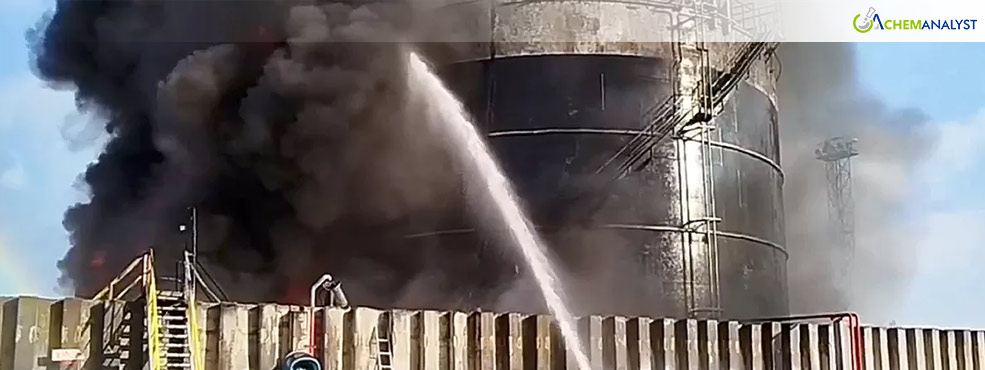Welcome To ChemAnalyst

In a significant escalation of its aerial offensive, Ukraine has launched a series of drone strikes on a major Russian chemical plant in Tula, Russia, which plays a critical role in the production of ammunition and gunpowder for the Russian military. The attack, carried out late on Friday and into Saturday, targeted the Aleksinsky chemical plant, a key facility located around 120 miles south of Moscow. Ukrainian officials reported that at least 13 military drones were used in the strike, causing explosions that resulted in orange smoke emanating from the plant.
The plant is a crucial component of Russia's military-industrial complex, manufacturing gunpowder and ammunition used in military operations. Ukrainian Special Operations Forces, in coordination with the SBU (Security Service of Ukraine), specifically targeted the facility’s gunpowder production line. The strike was part of Ukraine's broader strategy to disrupt Russia’s military supply chain by hitting critical infrastructure that supports its war efforts. The targeted attack on the chemical plant follows a pattern of Ukraine intensifying its strikes on Russian facilities involved in ammunition production, logistics, and military technology.
Witnesses in Tula reported hearing loud explosions at around 3 a.m. on Saturday, followed by another significant blast around 1 p.m. that afternoon. According to media reports, this second explosion was caused by chemicals catching fire at the Aleksinsky plant following the initial drone strike. The blasts triggered air alerts throughout the region, with alarm systems sounding around 9:30 p.m. Friday evening, signalling heightened military activity.
While the Russian Défense Ministry did not acknowledge any direct damage from the strikes, they did confirm that 50 Ukrainian drones targeted multiple Russian regions. The Russian military claimed to have intercepted all 50 drones, including those targeting the Tula Oblast. However, Ukrainian officials have suggested that many of the drones reached their targets successfully, causing significant damage to critical infrastructure. Ukraine’s military drones, sometimes called "suicide drones," are designed for one-way strikes that focus on maximizing destruction to high-value targets, making them an effective tool in Ukraine’s asymmetrical warfare strategy.
This latest wave of drone strikes is not an isolated event but part of a growing pattern of Ukraine targeting Russia’s munitions and weapons infrastructure. In October, Ukrainian drones successfully targeted several munitions facilities in Russian territory, dealing a blow to Russia’s ability to sustain its military operations. Ukrainian forces have also carried out high-profile strikes on weapons depots and military airfields, further weakening Russia’s logistical capabilities and reducing its capacity to continue its full-scale invasion of Ukraine, which began in February 2022.
One of the most notable strikes in recent weeks occurred in Tver Oblast, where a Ukrainian drone attack destroyed an ammunition warehouse. Ukrainian sources described the explosion as so powerful that the entire warehouse was "literally wiped off the face of the earth." According to the UK Ministry of Defence, these strikes have resulted in Russia’s largest loss of ammunition in the ongoing war, severely impacting its military readiness.
Despite facing challenges with limited drone capabilities, Ukraine’s growing success in conducting these attacks has highlighted its ability to disrupt Russia's military infrastructure deep within its own territory. These drone offensives are a testament to Ukraine’s expanding military capabilities, signalling that it can strike key Russian targets with increasing precision and effectiveness. Ukrainian officials continue to emphasize that these operations are part of their broader strategy to undermine Russia’s war effort and degrade its ability to continue its aggressive military actions.
As the war enters its second year, Ukraine’s strategic use of drones and other innovative technologies underscores its determination to push back against Russian advances and shift the momentum of the conflict. The success of these operations is also a reminder that while the war may be fought on the ground, the technological and logistical battlefield has become just as critical in shaping the outcome of the conflict.
We use cookies to deliver the best possible experience on our website. To learn more, visit our Privacy Policy. By continuing to use this site or by closing this box, you consent to our use of cookies. More info.
